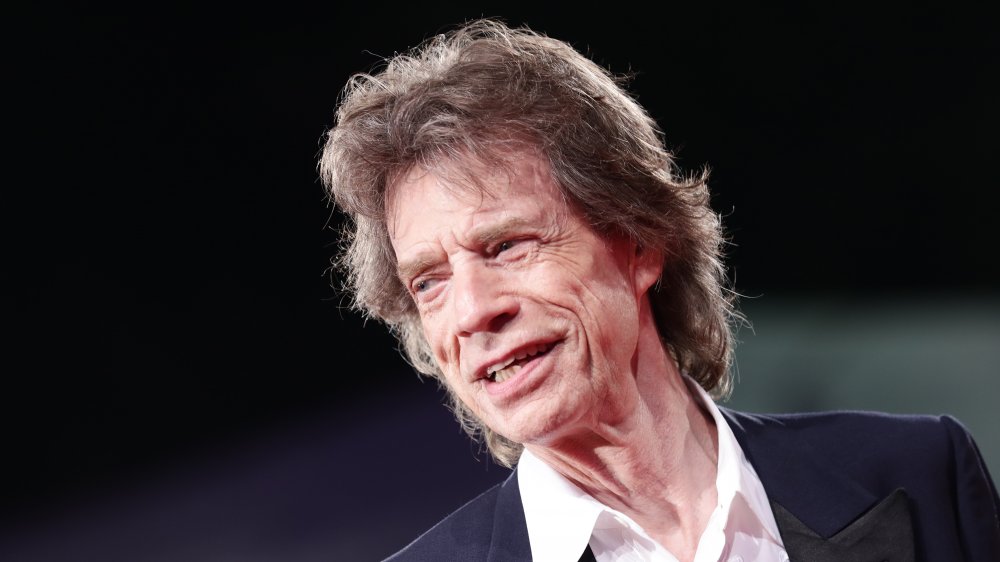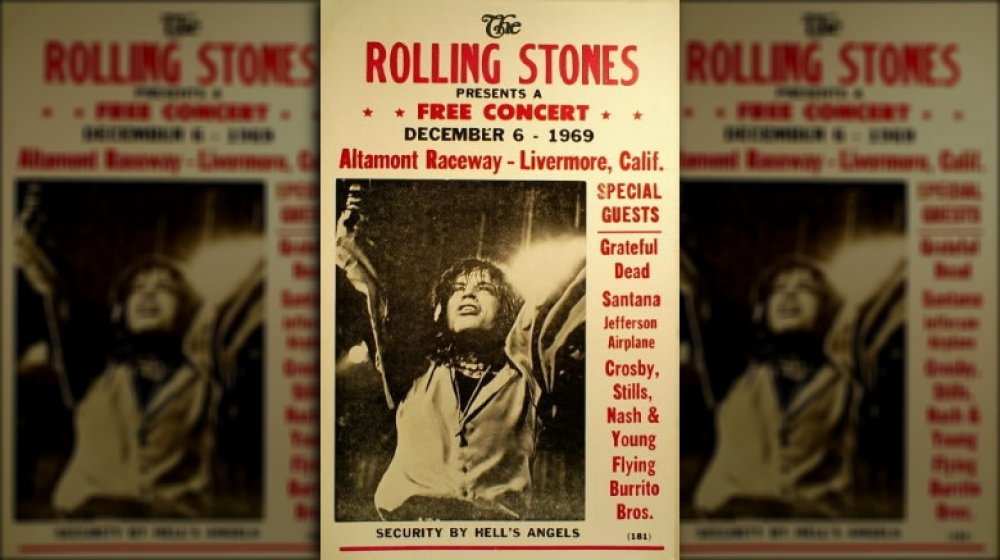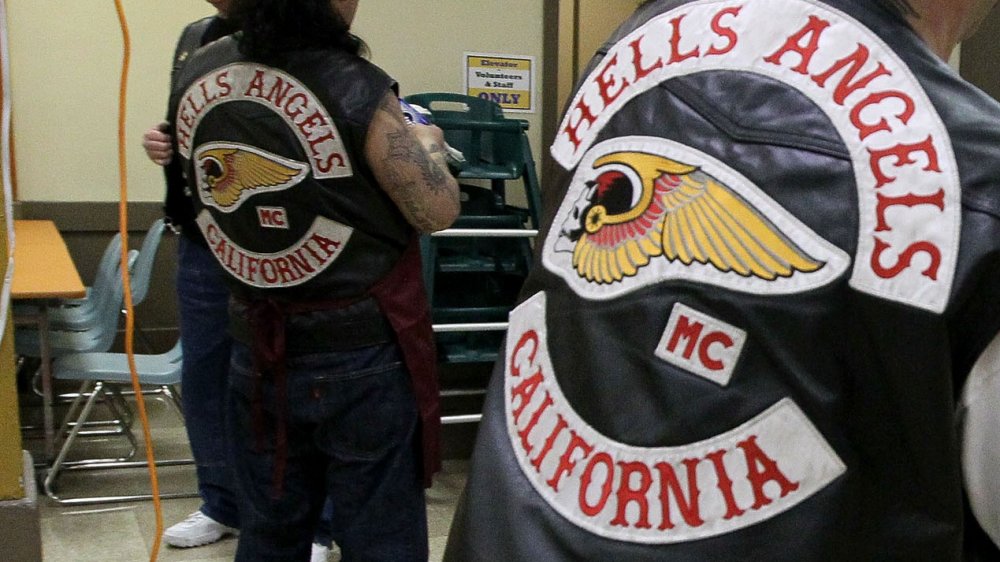Why A Motorcycle Gang Planned To Kill Mick Jagger
Imagine being unaware of a decades-old plot to carry out your assassination, and then hearing about it on TV. That's the situation Mick Jagger found himself in when an FBI agent revealed the 40-year-old news on a BBC documentary in 2008. According to Reuters, the notoriously violent Hells Angels biker gang conspired to murder the chicken dancing frontman of The Rolling Stones after the fallout from the infamous Altamont Speedway Free Festival on December 6, 1969.
"The Hells Angels were so angered by Jagger's treatment of them that they decided to kill him," said Tom Mangold, host of the documentary series "The FBI at 100." In an attempt to avoid the security at Jagger's vacation home in the Hamptons, on New York's Long Island, the snubbed bikers left their hogs on land and took to the sea, hoping to catch the rocker unawares by sneaking in through his beachfront garden.
But Mother Nature must be a Stones fan, because she had other plans for the angry Angels. A storm swept through and capsized their boat, throwing everyone overboard. They all survived, but the shipwreck put the kibosh on their murderous plans, and there's no evidence that they cooked up any others. Jagger has declined to comment on the fact that he was one of a number of celebs who were almost murdered. But, why were the not-so-angelic Angels so irked in the first place?
Mick Jagger's infamous falling-out with the Hells Angels Motorcycle Club
The free concert held at the Altamont Speedway in Livermore, California, was supposed to be a good time. Something along the lines of Woodstock, but, we'd hope, with less death by sewage tanker (probably the worst thing that happened at Woodstock.) It was a rock show, after all. In addition to the Stones, the lineup included the Grateful Dead, Santana, Jefferson Airplane, Crosby, Stills, Nash and Young, and the Flying Burrito Brothers. As it turned out, the show would end in such tragedy that The Telegraph deemed December 6, 1969 "the day the music died."
The day got off to a rough start. According to Ultimate Classic Rock, Jagger was punched in the face by an angry fan the moment he stepped off the helicopter that brought the band to the show. Hired as "security" and paid with beer, the Hells Angels quickly grew violent during the concert, so much so that the Grateful Dead refused to go on stage. What ended up being the last straw for Jagger was when Hells Angel Alan Passaro stabbed 18-year-old Meredith Hunter to death. Jagger and the rest of the band had obvious qualms with the Hells Angels stabbing their fans to death, so they publicly denounced the bikers and said they'd never again hire them as concert security. As revealed by the BBC documentary, the Hells Angels didn't take the break up very well.
The Hells Angels Motorcycle Club didn't vibe with Jagger's hippie ideals
Several outlets have reported on the racial motivations behind the violence perpetrated by the Hells Angels that fatefully tragic day in rock and roll history. According to the Daily Mail, the bikers "were not just the relatively civilized San Francisco Angels known to the Grateful Dead," who had hired that chapter for concert security on previous occasions. Those working Altamont "came from an unstable mixture of chapters," and some "were frankly psychotic." Much of that violence was directed at the non-white members of the audience. They beat a naked Latino man to a bloody pulp for dancing erratically, and did the same to a naked woman handing out free hugs. You know, the usual hippie stuff.
They didn't seem to like the fact that Meredith Hunter, a black man, had come to the concert with his white girlfriend. Just a Shot Away, a book about the Altamont tragedy, was published in 2018. Barbara Spindel reviewed the book for the Christian Science Monitor, pointing out that there was a "misguided affinity" between the hippies and the bikers, the latter of whom "gave ample indication of having racist and violent authoritarian tendencies." Hunter's murder was caught on tape and is part of the 1970 documentary Gimme Shelter. Jagger was visibly shaken by the incident, so it's no wonder his relationship with the Hells Angels soured after that. Luckily for him, Mother Nature saved him from the same terrible fate.


